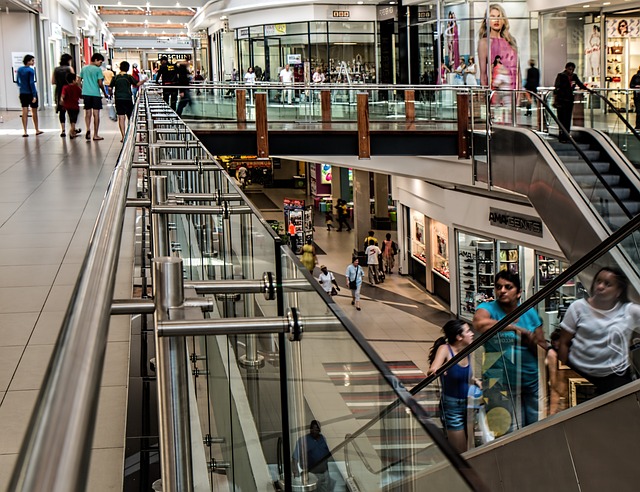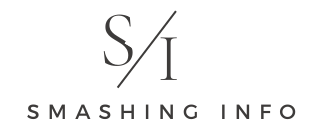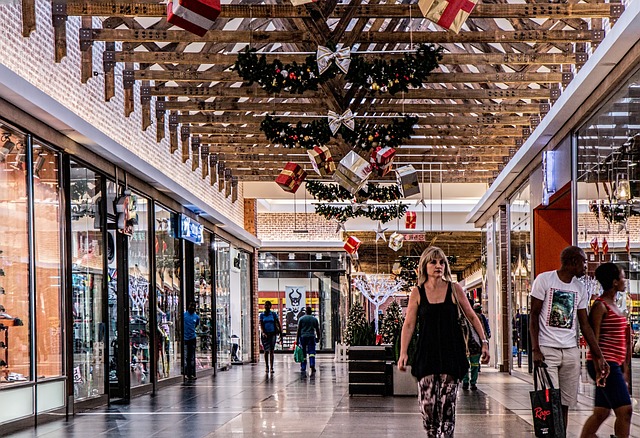Is clothing/shoe/accessory stores a good career path
Is clothing/shoe/accessory stores a good career path? Working in the retail industry, specifically in clothing, shoes, or accessories stores, can be a good career path for those who have a passion for fashion and enjoy interacting with customers. Here are some points to consider:
Pros:
Job availability
Job availability in the fashion retail industry can vary depending on factors such as location, market trends, and the overall economy. However, the fashion retail industry is a significant part of the global economy, and there are often job opportunities available in various roles such as sales associates, visual merchandisers, buyers, store managers, and more. Additionally, with the rise of e-commerce, there has been an increase in demand for roles such as digital marketers, social media managers, and e-commerce specialists. While the competition for jobs can be high, those with a strong work ethic, customer service skills, and a passion for fashion may be able to find job opportunities in the industry.
Creativity:
Working in a clothing, shoe, or accessory store requires a certain level of creativity, especially in visual merchandising, styling, and product selection. Here are some examples of how creativity plays a role in various roles in the industry:
- Visual merchandising: Visual merchandisers are responsible for creating eye-catching displays that showcase the store’s products and attract customers. This requires a strong sense of design, color theory, and creativity to create unique displays that set the store apart from its competitors.
- Styling: Sales associates who are skilled in styling can help customers put together outfits that make them feel confident and fashionable. This requires creativity in understanding different fashion styles and being able to mix and match different pieces to create a cohesive look.
- Product selection: Buyers are responsible for selecting the products that the store will carry. This requires creativity in being able to identify fashion trends and selecting products that will appeal to the store’s target market.
Overall, creativity is an essential skill for anyone working in the fashion retail industry, as it allows individuals to showcase the store’s products in a unique and compelling way and to help customers find the perfect outfit or accessory.
Customer interaction
Working in a clothing, shoe, or accessory store requires frequent customer interaction, which can be both rewarding and challenging. Here are some examples of how customer interaction plays a role in various roles in the industry:
- Sales associates: Sales associates are responsible for providing excellent customer service, answering questions, and helping customers find the right products. This requires excellent communication and interpersonal skills to build rapport and trust with customers.
- Stylists: Stylists work one-on-one with customers to help them find the perfect outfit or accessory. This requires active listening skills and the ability to make personalized recommendations based on the customer’s preferences and needs.
- Store managers: Store managers are responsible for overseeing the store’s operations, including customer service. This requires strong leadership skills and the ability to train and motivate sales associates to provide excellent customer service.
Overall, customer interaction is a crucial aspect of working in the fashion retail industry, as it allows individuals to build relationships with customers and provide them with an exceptional shopping experience. However, it can also be challenging to handle difficult customers or resolve conflicts, so individuals in the industry must have excellent communication and problem-solving skills.
Career advancement
The fashion retail industry offers opportunities for career advancement, from entry-level positions to management and beyond. Here are some examples of career paths in the industry:
- Sales associate: This is an entry-level position that involves assisting customers, processing transactions, and maintaining the store’s appearance. With experience and a strong work ethic, sales associates can move up to higher-paying positions such as senior sales associate or department manager.
- Visual merchandiser: Visual merchandisers are responsible for creating attractive displays that showcase the store’s products. With experience and a strong portfolio, visual merchandisers can move up to higher-paying positions such as visual merchandising manager or regional visual merchandiser.
- Buyer: Buyers are responsible for selecting the products that the store will carry. With experience and a strong understanding of fashion trends and consumer preferences, buyers can move up to higher-paying positions such as senior buyer or merchandise director.
- Store manager: Store managers are responsible for overseeing the store’s operations, including customer service, sales, and inventory management. With experience and strong leadership skills, store managers can move up to higher-paying positions such as district manager or regional manager.
Overall, the fashion retail industry offers a wide range of career paths and opportunities for advancement. Individuals who are committed to their work, have a strong work ethic, and are willing to learn and grow can move up the ranks and build successful careers in the industry.
Cons
Salary
Salaries in the fashion retail industry vary widely depending on the specific role, company, location, and level of experience. Here are some examples of average salaries for common roles in the industry, based on data from the Bureau of Labor Statistics and Glassdoor:
- Sales associate: The average hourly wage for a sales associate is around $12 per hour, with variations depending on the company and location.
- Visual merchandiser: The average salary for a visual merchandiser is around $40,000 per year, with variations depending on the company and location.
- Buyer: The average salary for a buyer is around $65,000 per year, with variations depending on the company and location.
- Store manager: The average salary for a store manager is around $50,000 per year, with variations depending on the company and location.
It’s important to note that salaries in the fashion retail industry can vary widely based on individual factors such as education, experience, and performance. Additionally, higher-level roles such as district manager or regional manager can command much higher salaries.
Work schedule:

The work schedule in the fashion retail industry varies depending on the specific role, company, and location. Here are some examples of work schedules in common roles in the industry:
- Sales associate: Sales associates often work part-time or full-time hours, depending on the needs of the store. Work schedules can include early mornings, evenings, weekends, and holidays, as these are often peak shopping times.
- Visual merchandiser: Visual merchandisers may work full-time hours, with occasional overtime required during peak seasons or when setting up new displays. Work schedules may include early mornings, evenings, weekends, and holidays.
- Buyer: Buyers typically work full-time hours, often with occasional overtime required. Work schedules may include regular office hours, as well as travel to trade shows and supplier meetings.
- Store manager: Store managers often work full-time hours, with occasional overtime required during peak seasons or for special events. Work schedules may include early mornings, evenings, weekends, and holidays.
It’s important to note that the fashion retail industry is known for being fast-paced and dynamic, and schedules can be subject to change based on the needs of the store or company. Additionally, those in higher-level roles such as district manager or regional manager may need to travel frequently or work longer hours.
Sales pressure:
Sales pressure is a common aspect of working in the fashion retail industry. Sales associates and other employees may be required to meet certain sales goals or targets, which can create pressure to make more sales and generate revenue for the company. Here are some examples of how sales pressure may manifest in different roles:
Also read:Is Oil Refining/Marketing a Good Career Path?-Best paying jobs in Oil Refining/Marketing
- Sales associate: Sales associates are often required to meet certain sales goals or quotas. This can create pressure to push products on customers or use aggressive sales tactics to make more sales.
- Visual merchandiser: While visual merchandisers may not be directly responsible for sales, they may feel pressure to create displays that are visually appealing and encourage customers to buy more products.
- Buyer: Buyers may feel pressure to select products that will sell well and generate revenue for the company. This can involve analyzing sales data, staying up-to-date on fashion trends, and making informed decisions about what products to stock.
- Store manager: Store managers are often responsible for overseeing sales and revenue, which can create pressure to meet certain targets. This can involve motivating sales associates to make more sales, analyzing sales data, and making strategic decisions about pricing, promotions, and inventory.
While sales pressure can be challenging, it is also a natural part of working in the fashion retail industry. By setting realistic goals, providing training and support to employees, and fostering a positive work culture, employers can help mitigate the negative effects of sales pressure and create a more productive and enjoyable work environment for everyone.
conclusion
In conclusion, the fashion retail industry can be an exciting and dynamic career path for those who are interested in fashion, creativity, and customer interaction. While the industry offers a wide range of career opportunities, it can also involve long hours, sales pressure, and a fast-paced work environment. However, with the right mindset, strong work ethic, and willingness to learn and grow, individuals can build successful and fulfilling careers in the industry. As with any career path, it’s important to do your research, gain experience, and seek out opportunities for career advancement and personal growth.
FAQs
Here are some common FAQs related to careers in the fashion retail industry:
- What education or training is required to work in the fashion retail industry?
While some roles in the industry may require a specific degree or certification, many entry-level positions can be obtained with a high school diploma or equivalent. However, having a degree in fashion design, merchandising, or business can be an advantage in certain roles.
- What skills are important for success in the fashion retail industry?
Important skills for success in the industry include creativity, communication, customer service, sales skills, attention to detail, and an understanding of fashion trends and consumer behavior.
- What types of jobs are available in the fashion retail industry?
There are a wide range of jobs available in the industry, including sales associates, visual merchandisers, buyers, store managers, and district/regional managers, among others.
- What is the salary range for jobs in the fashion retail industry?
Salaries in the industry vary widely depending on the specific role, company, location, and level of experience. However, common roles in the industry may include sales associates with an average hourly wage of around $12 per hour, and buyers with an average salary of around $65,000 per year.
- What is the work schedule like in the fashion retail industry?
The work schedule varies depending on the specific role, company, and location. Common roles in the industry may include part-time or full-time work, with occasional overtime required during peak seasons or special events. Work schedules may include early mornings, evenings, weekends, and holidays.
- Is there sales pressure in the fashion retail industry?
Yes, sales pressure is a common aspect of working in the industry. Sales associates and other employees may be required to meet certain sales goals or targets, which can create pressure to make more sales and generate revenue for the company.
Also read:The Importance Of Commercial Mortgage Truerate Services







